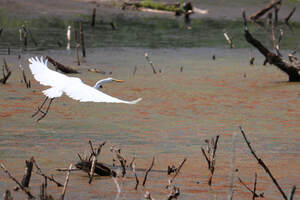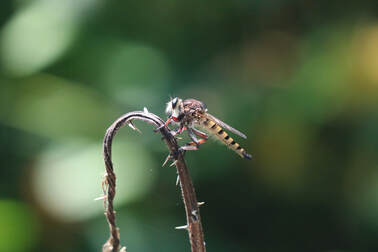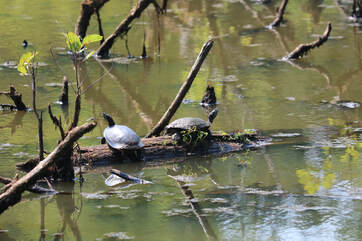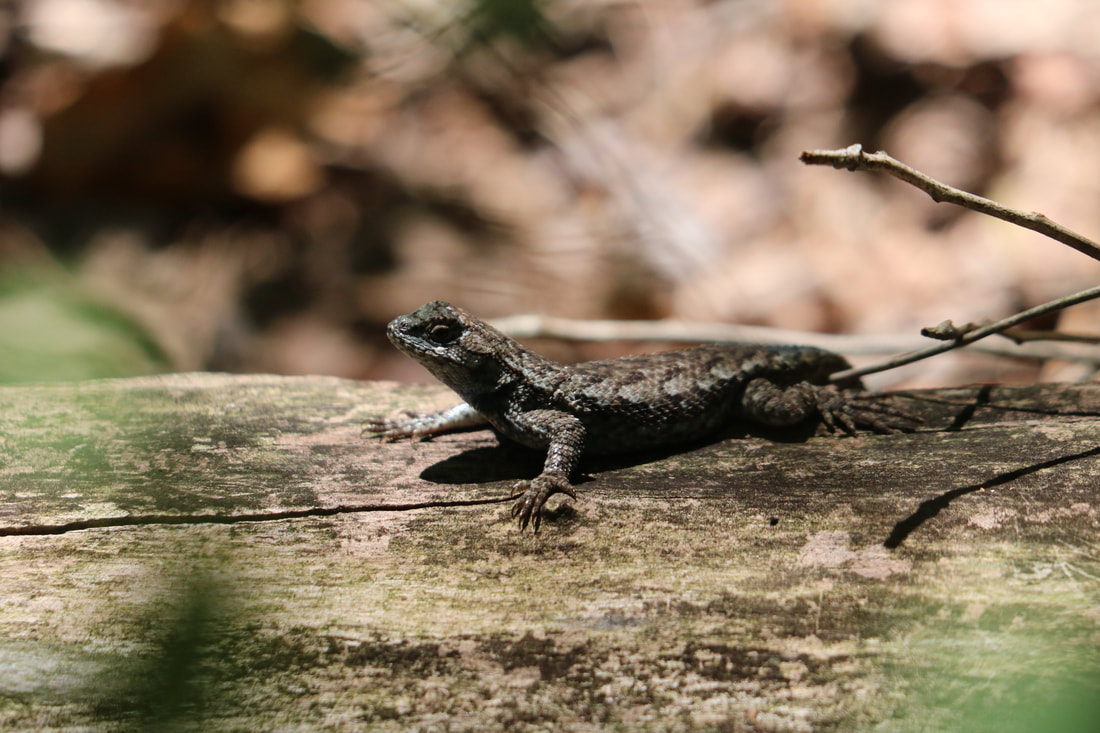
Welcome to Rayz Reviewz. Past editions are archived on my web page. My feature article, Whale Watch: A Cape Cod Memoir, follows the Travel Close to Home section and the Opportunities section. This week’s photos are from the Curtain Pole Road portion of the Tennessee Riverpark in Chattanooga, Tennessee.
Travel Close to Home
For the past few weeks, the Curtain Pole Road section of the Tennessee Riverpark has been my “go to” location for nature photography. I have spent several mornings there, collecting photographs of Great Egrets, Great Blue Herons and Green Herons, and more recently, dragonflies, robber flies, and cicadas, as well as fruits and flowers.
Meanwhile, the Chickamauga Dam is still productive for viewing Osprey, Double Crested Cormorants, and Great Blue Herons. If you want to know more about the birds mentioned here, see the online field guide of the National Audubon Society.
The picnic area of the Tennessee Riverpark near the Hubert Fry Center has some lovely flower gardens which are productive for butterfly observation and photography.
The American Lotus at Amnicola Marsh are rapidly losing their flowers. The large seed heads are prominent and green with some turning to brown. Soon the duck and geese populations should be more visible.
Chattanooga Outdoors provides information about outdoor sports on their web page https://outdoorchattanooga.com/. This is the place to find out about bicycling, kayaking, white water rafting and other opportunities.

Owl Canyon Review offers a short story contest with an October 1 deadline. They supply the first and last paragraph and your write 18 paragraphs. The contest FAQ is available online.
Ecotone Magazine promotes place-based writing. The editors recently posted the current issue. For Submission information, consult the submissions page..
Still, the Journal publishes an annual edition celebrating Appalachia. To know what they like to publish, read selections on their web page: Guidelines for submissions are also available there.
Frontier Poetry has a $3,000 award for new poets competition. The deadline is September 15. Guidelines are available on the web.
The Missouri Review publishes in all genres Submission Guidelines are available online.
The Avocet is now accepting nature poetry for the fall edition. If you simply like reading the poetry, a subscription if $24 for a quarterly bound journal and a weekly edition delivered viz email. Subscriptions should go to The Avocet, P.O. Box 19186, Fountain Hills, AZ 85269
Include yours email address if you want to receive guidelines for submissions.

I exclaimed about the size of the beast, but the shipboard naturalist pointed out, “That’s the whale calf, the mother is over there.” She was an adult Right Whale, possibly 50 feet long, and as much as 79 tons. As do all mother Right Whales, she swam in tandem with another adult whale, her escort. The second whale could have been male or female and stood by to help fend off potential predators.
In bygone days, they were the right whale to kill. That’s how they got the name. They floated when dead. Slow swimmers, they were easy targets. They yielded tons of blubber; rendered to oil and stored in barrels. It fetched a good price on the docks. The baleen plates in their mouth, designed to strain food from the water, became corset stays. Whalebone corsets where fashionable.
After the whaling ships had done their work, few remained. On that day in 1988, the world-wide population was about 300. The three we saw amounted to one percent of all North Atlantic Right Whales. They were the first whales I ever saw and they became all whales for me. Though I would later see humpback whales and finback whales, sleek and fast, I will always think of rotund, slow swimming Right Whales, rarest of the rare, when I hear of whales.
The calf came close to our boat to wave and splash with an energetic tail. It rolled to one side and waved a fluke. I wished the calf a long and healthy life; growth to maturity without being cut down by killer whales or an illegal whaling ship. I wished it survival without loss to accident or disease.
I have since read that the North Atlantic Right Whale population has increased to 450 individuals. Today, it pleases me that somewhere off the American coast, mother Right Whales swim with escorts who sing to them as the calf nurses, filling with milk so rich in butterfat it would be toxic to humans. After drinking its fill, the calf circles mother and escort with the boundless energy of all young things.
Shameless Self Promotion
A few months ago I wrote an article about Robert Sparks Walker for The Chattanooga Pulse.

 RSS Feed
RSS Feed